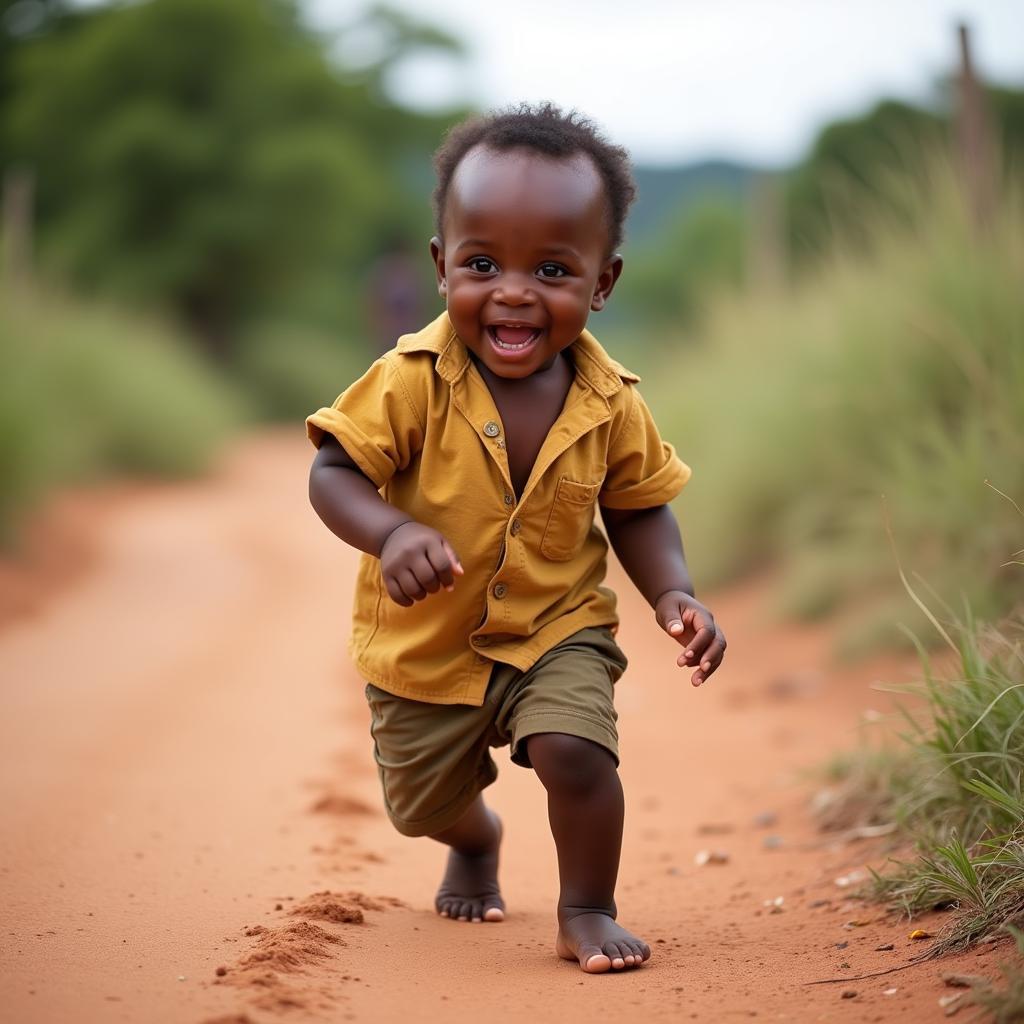African Babies Walking Early: Exploring the Phenomenon
African Babies Walking Early is a topic that sparks curiosity and wonder. While babies around the world typically take their first steps around their first birthday, there’s a common observation that babies in certain African cultures seem to hit this milestone sooner. But is this observation grounded in truth or simply a cultural myth?
Nature vs. Nurture: Unraveling the Mystery
The question of why African babies might walk earlier than their counterparts in other parts of the world delves into the fascinating interplay between nature and nurture.
- Genetics: Some researchers propose that genetics could play a role. While there’s no single gene for early walking, genetic factors influencing muscle development, bone structure, and overall physical development could contribute.
- Environmental Factors: Others point to environmental factors prevalent in certain African cultures. These include:
- Active Lifestyles: Many African communities engage in physically demanding tasks as part of their daily routines. Babies are often carried on their mothers’ backs or hips, providing constant physical stimulation and exposure to a wide range of movements.
- Early Motor Encouragement: Traditional child-rearing practices in some African cultures actively encourage motor development from a young age. Infants might be placed on the ground more often, allowing them to strengthen their muscles and experiment with different positions.
- Floor Time vs. Devices: Unlike in some Western cultures where babies spend significant time in strollers or baby carriers, infants in some African communities have more opportunities for unrestricted movement on the floor. This freedom to move, explore, and test their limits could contribute to earlier walking.
 African Baby Learning to Walk
African Baby Learning to Walk
The Importance of Individual Variation
While cultural factors might influence the age at which babies start walking, it’s crucial to remember that individual variation is significant. Just as with any developmental milestone, there’s a wide range of “normal” when it comes to walking. Some babies are naturally inclined to be more physically active and adventurous, while others might take a more cautious approach.
It’s also essential to avoid generalizing about entire continents or cultures. Africa is a vast and diverse continent, with a rich tapestry of traditions and practices. Generalizations can perpetuate harmful stereotypes and overlook the unique experiences of individuals within these cultures.
The Role of Nutrition and Healthcare
While we’ve explored the potential influence of genetics, culture, and individual differences, it’s important to acknowledge the crucial role of nutrition and healthcare in a child’s development. Access to nutritious food, quality healthcare, and a supportive environment are all essential factors that can impact a child’s overall growth and development, including their ability to reach physical milestones like walking.
Conclusion
The observation that African babies might walk earlier than babies from other regions is a fascinating topic that delves into the complexities of genetics, culture, and individual variation. While research suggests that cultural practices and environmental factors could contribute to earlier walking in some cases, it’s crucial to avoid making sweeping generalizations. Every child develops at their own pace, and a multitude of factors contribute to their unique developmental journey.
If you’re curious to learn more about child development or have questions about your baby’s milestones, don’t hesitate to reach out. Contact us at +255768904061, email us at kaka.mag@gmail.com, or visit us at Mbarali DC Mawindi, Kangaga, Tanzania. Our team is available 24/7 to assist you.
